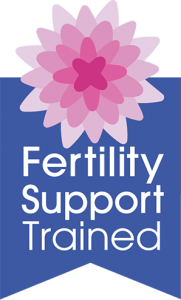
If you as a consumer find yourself in the unexpected position of needing fertility treatment, how do you find a doctor, a clinic, and navigate your way through a system you never thought you needed to know anything about?
Most of my clients start with their GP – and that can be a fraught experience as General Practitioners don’t always know enough about fertility issues to order the right initial blood tests or semen analysis, let alone refer appropriately and in a timely manner. Next, most people make their way through the NHS system, with all its inherent delays and standardised protocols. This too can be potluck, as which area you live in can determine what kind of care you get, even down to whether you’ll be offered an IVF cycle.
Many of my clients at some point are lucky enough to be able to opt out of the NHS and into the world of private medicine. How do they find the right doctor or clinic? This is usually a matter of personal recommendation, word of mouth, or with the help of ‘Dr Google’, Facebook Groups or Fertility Friends, and a whole lot of trust that whomever they choose will recommend only appropriate, ethical and essential treatment.
Guiding clients through their journey
Over the last 20 years as a Fertility Acupuncturist, I’ve realised that along with the results I see from my treatment, one of my most valuable abilities is to hold my clients through their fertility journey. After years working closely with consultants, within IVF units both private and NHS, UK-based and abroad, I can talk to my clients in an impartial way about each test and its implications from a Western medical point of view. All too often, I catch things which have been missed, or help clients ask vital questions of their care provider which ensure they are treated as individuals. I have even, on occasion, sent them for blood or sperm tests which have prevented them from undergoing treatment which is either unnecessary or would have had no chance of success.
If I had to define it, I’d say I am most passionate about helping the potentially vulnerable fertility patients know what we, as Traditional Chinese Medicine practitioners, can do, when we do it correctly. When we practice with integrity, with an understanding of Western medicine, with good customer service, and when we decide to continually invest in our own learning (which translates into a higher standard of care and results for the client), then we safeguard the consumer.
Why is three months so important?
I’d like the potential fertility client to know that from both a Traditional Chinese Medicine and Western medical point of view, we need a minimum of three months before they can expect to see the results we are all working toward. Why is that? Well, it takes three months for a process to take place which begins with the body signalling to the ovary to begin to bring forward a group of follicles and ends with a mature follicle which ovulates and releases an egg. In this time, we are working on the metabolic, immunological and hormonal environment in which the egg is matured. During these initial three cycles, the environment is still being influenced by what was happening before we began treatment. It is only from month four that the change we have wrought in the internal environment of the body can be seen in the results, both symptomatic and in any blood tests we do. It is the same for sperm; it takes 100 days for sperm to completely reproduce and it is only after we’ve worked on it for this time that we should test to see the difference that our treatment has made.
How does a Fertility Acupuncturist integrate their treatment with Western medicine?
The beautiful thing about the way a highly trained Fertility Acupuncturist works, is that they will take all the Western medical test results you have and be able to translate this into Traditional Chinese Medicine and treat you effectively, specifically, individually and with concrete results. For example, if a client comes to me with polycystic ovaries (PCOS) and needs an IVF cycle, I can use the results of the oestrogen tests they have during their IVF cycle to help me understand how best to help them avoid being hyper-stimulated and getting Ovarian Hyper-Stimulation Syndrome (OHSS).
To take a different example, if a client comes to me with a history of miscarriage, I can look at their progesterone levels and if I see they are too low I can treat with Traditional Chinese Medicine and re-measure the hormone levels each month, until they come up to a level where the client is ready to try to conceive again.
How do you know if your acupuncturist has the specialist knowledge to treat fertility?
Unfortunately, in the UK practitioners can buy a well-recognised title for fertility acupuncture with minimal training or clinical experience. The public quite rightly assumes that this title comes with great skill, but this is not always the case. This stands in direct contrast to other countries such as the USA, Canada and Australia where there are specialist fertility acupuncture boards, with stringent exams, which have been created to denote those who spend that extra time and effort to become specialists in this field.
I am a member of the British Acupuncture Council, which ensures that there is a strict standard of degree-level training that each practitioner needs to go through before they can call themselves a member. Essentially though, when we graduate, we all graduate as generalists, and it is up to each individual as to whether they choose to further their education in a particular field, or just treat within it to the best of their ability. At the moment, as the British Acupuncture Council refuses to make any kind of statement on specialisation, members are free to call themselves specialists immediately after their initial qualification. This is a problem, as the public continues to be vulnerable to poor standards of practice and even British Acupuncture Council membership, which is an important indicator of the quality of an acupuncturist’s training, does not mean that a “fertility specialist” has undertaken extra study to achieve a specialist status or knowledge.
I believe that as a result of this situation, within our profession in the UK, we as Fertility Acupuncturists need to do all we can to differentiate ourselves as practitioners who have decided to educate and invest in themselves on an ongoing basis to improve their results. In this way, patients and practitioners come together in a fantastic, synergistic and most of all effective team.
Look for evidence of specialist training…
Three years ago this situation came to a head for me when I had a client come in to see me who had gone through two years of unnecessary treatment with an acupuncturist who had not understood enough about the complexity of fertility work to treat their condition properly. They had several miscarriages both before and during treatment, some of which were the result of natural conception, and some of which were following IVF cycles. When I took a detailed history, I could clearly see this client had a disordered immune system and needed me as a fertility acupuncturist to work with a consultant who specialised in Reproductive Immunology to understand and accurately treat the condition. Once we tested her, we could accurately prepare her (a mere three-month process). She then conceived naturally, was able to take the correct medication, and went on to have a healthy baby. I realised that I had been through this scenario all too many times before, and that I felt a responsibility to try and bring about the same high standards in the UK as other countries had, in order to safeguard the consumer.

I therefore went on to create a Diploma in Advanced Level Fertility Acupuncture, downloading the contents of my 20 years of experience into five modules which cover everything from reproductive immunology, to recurrent miscarriage, from PCOS to endometriosis and all manner of testing, IVF and other artificial reproductive procedures and even complex obstetric conditions. Practitioners have to have been in practice for 5 years before they can obtain this specialist Diploma, and as a result of this extra training, they come with an extremely high level of specialist knowledge and competence. They have a listing on my website, and a logo which I would encourage you anyone to look for when choosing a fertility acupuncturist.
One of the most important things consumers should know though, is that this logo isn’t simply renewed upon payment of a fee, but each year the practitioners who have the Diploma need to provide proof of continuing high-level continuous professional development in fertility and/or obstetrics. These are practitioners who are committed to voluntarily maintaining extremely high standards of knowledge, and this translates in a very clear way into the standard of treatment and the kinds of results their clients can expect to achieve.
I am very happy to personally recommend each and every one of these practitioners as a knowledgeable companion on the fertility journey, which can be long, fraught, and unexpected. That journey can be made immeasurably easier by having someone with the skills in Traditional Chinese Medicine and the understanding of Western medicine, and who can help each client to be a positive and empowered patient and parent.
Tags: acupuncture, Advanced Diploma in Fertility Acupuncture, chinese herbal medicine, fertility, infertility, Naava Carman, standards, Traditional Chinese Medicine, training
2 Responses to “How to choose a specialist fertility acupuncturist”
Katherine
Thanks for this really informative article. Please edit your comment about GPs – General Practice is a medical speciality that requires at least 5 years of training after medical school. You could say that you graduate as “generalists” and it is up to you to become “specialists” but I wouldn’t bring the GP analogy into it. Thanks from a qualified doctor training to be a GP.
Naava Carman
Thank you for your comment Katherine, I’ve updated the blog to reflect that acupuncturists graduate as generalists.